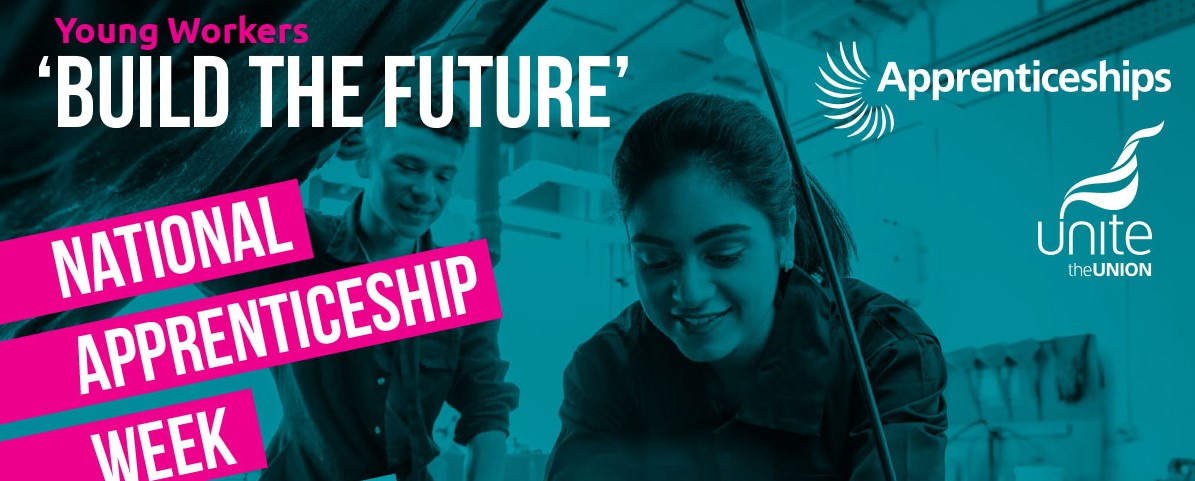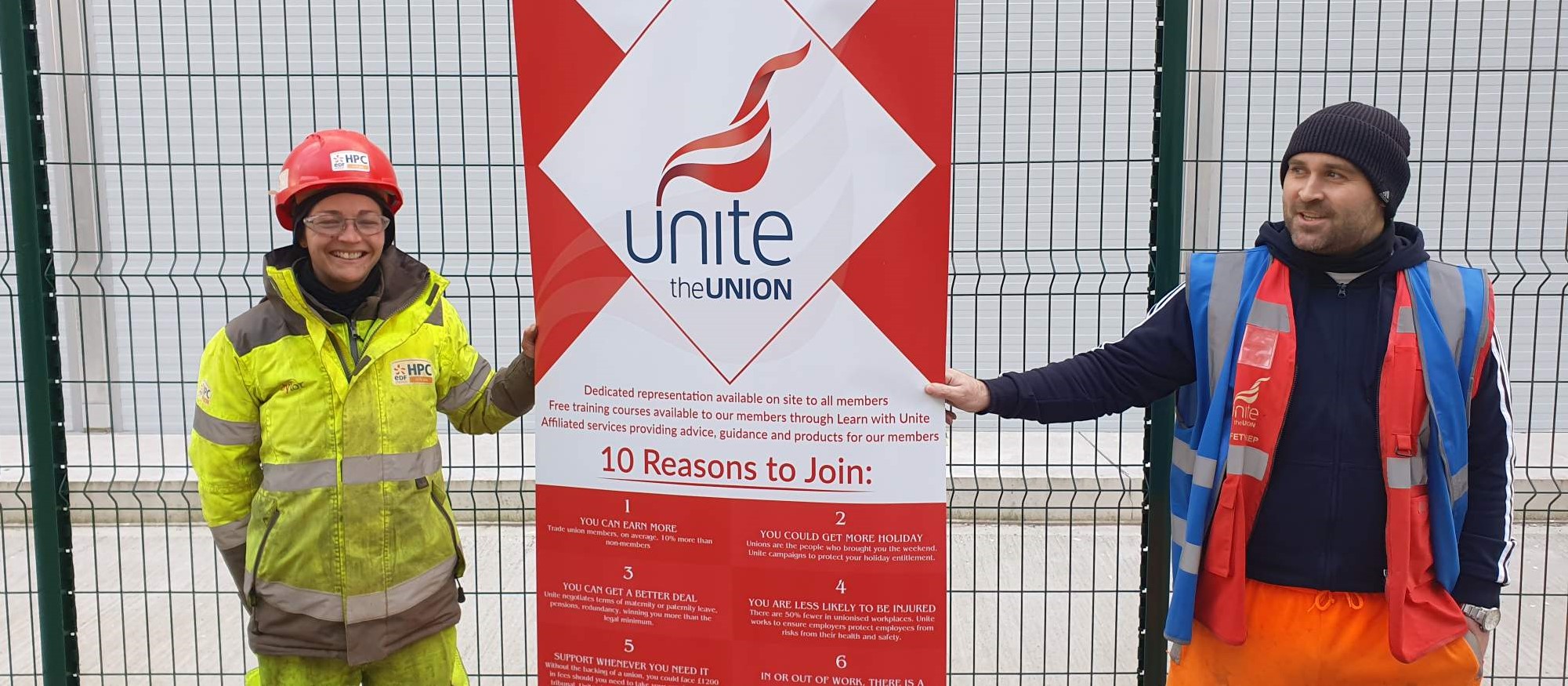â€Bitterly disappointed’
On the surface things are looking up for Britain’s future apprentices, who will keep the skills and knowledge needed for a productive and secure economy alive in the years to come.
At beginning of next month the government’s apprenticeship levy will come into force. The levy, which will be raised by charging companies with a pay bill of more than £3m, aims to create three million apprenticeships by 2020.
But just as experts have warned that a new emphasis on technical education for 16 to 19-year-olds announced by Chancellor Philip Hammond in this week’s Budget needs to be enacted effectively if it is to help close the UK’s skills gap, Unite is clear that the apprenticeship levy also needs scrutinising for it to make a difference.
Technically the levy will apply to all companies, regardless of their size. Firms will pay 0.5 percent of their wage bill, however because each employer receives a ÂŁ15,000 allowance, those with wage bills of less than ÂŁ3m will not pay any money, although they can still apply for funding if they wish to take on apprentices.
Unite assistant general secretary Tony Burke, said the Tories have “stolen the clothes” of trade unions like Unite, who have been pushing for an apprenticeship levy for a long time.
Despite a clear success in pressuring the government into action, he warned that the levy was far from perfect and said unions could not rest on their laurels once it is introduced.
No automatic seat
“The levy is compulsory, so Unite has been working on the basis that we’ll get the best out of it. However, we’re bitterly disappointed that the Institute of Apprentices that will run and oversee the levy’s application has no automatic seat for trade unions,” Burke explained.
“We’ve got hundreds of members who train apprentices in their daily jobs or who are training managers and their voices are not necessarily going to be heard because trade unions don’t have a seat. That’s a backwards step and the employers that we speak to agree with us. We’re going to make sure, wherever we can, that the voices of working people are listened to.”
Another issue is that the government “will be scrambling” to fulfil its promise of creating 3 million apprenticeships by 2020, Burke said. While this sounds positive, the danger is that “anything that remotely looks like an apprenticeship is going to be counted as an apprenticeship”.
“At the end of the day it will distort the real issue, which is that we’re facing a skills crisis,” said Burke.
“We must avoid creating low quality, cheap and cheerful apprenticeships. For the levy to work we need apprenticeships on offer that are gold standard. Unite is working with the sector skills councils and other bodies to make sure that happens – in manufacturing in particular.”
â€Overtraining’
Rather than creating sub-standard apprenticeships in non-essential roles, Burke said companies that can provide real training opportunities should use the levy to increase the amount of apprentices they take on. By “overtraining”, skilled workers will filter down the supply chain, creating new jobs and boosting the economy.
Burke said that the UK should be looking towards Germany if it is intent on fending off the skills crisis and building a strong economy in the future.
He said, “In Germany there is a much bigger emphasis on vocational training. Young people start considering apprenticeships in their early teens. If you go into an apprenticeship in an area such as engineering you’re seen as somebody important. They take skills very very seriously. That’s what we need in the UK.”
For more information on National Apprenticeship Week click here.
 Like
Like Follow
Follow


